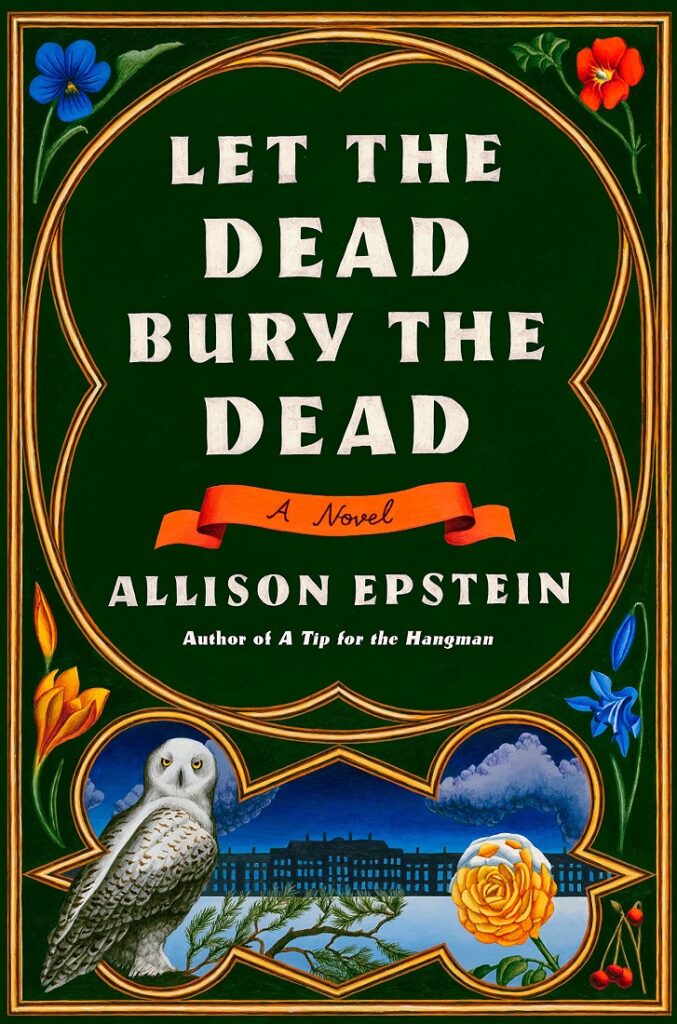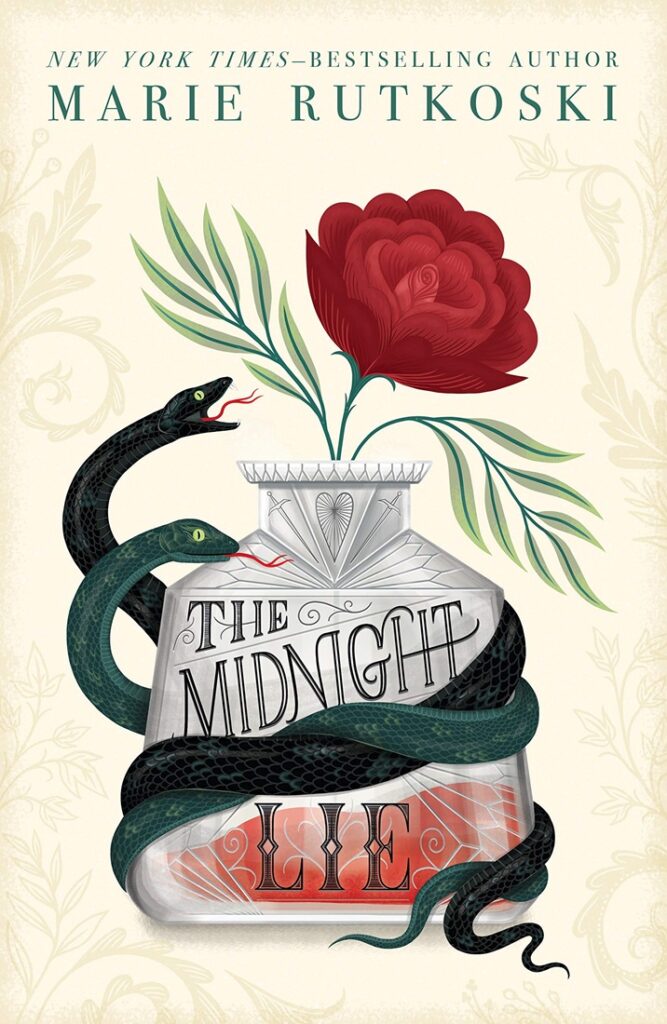
soupçon/ˈsuːpsɒn,ˈsuːpsɒ̃/ noun
1. a very small quantity of something; a slight trace, as of a particular taste or flavorSunday Soupçons is where I scribble mini-reviews for books I don’t have the brainspace/eloquence/smarts to write about in depth – or if I just don’t have anything interesting to say beyond I LIKED IT AND YOU SHOULD READ IT TOO!
Two very different books that I enjoyed very much!

Genres: Queer Protagonists, Historical Fantasy, Speculative Fiction
Representation: MLM MC, bisexual MC, M/M, F/F, sapphic ace-spectrum MC, major Jewish characters
PoV: 3rd-person, past-tense; multiple PoVs
ISBN: B0BSKSTT63
Goodreads

An urgent, immersive alternate history set in an imperial Russia on the brink of disaster, following a surprising cast of characters seeking a better future as Saint Petersburg struggles in the wake of Napoleon’s failed invasion.
Saint Petersburg, 1812. Russian forces have defeated Napoleon at great cost, and the Tsar's empire is once again at peace. Sasha, a captain in the imperial army, returns home to Grand Duke Felix, the disgraced second son of the Tsar and his irrepressibly charming lover, but their reunion is quickly interrupted. Everything changes with the arrival of Sofia, a mysteriously persuasive figure whose disruptive presence Sasha suspects to be something more than human. Felix, insisting that Sasha's old-fashioned superstitions are misplaced, takes Sofia into his confidence—a connection that quickly becomes both personal and political. On her incendiary advice, Felix confronts his father about the brutal conditions of the common people in the aftermath of the war, to disastrous results, separating him from Sasha and setting him on a collision course with a vocal group of dissidents: the Koalitsiya.
Meanwhile, the Koalitsiya plan to gridlock Saint Petersburg with a city-wide strike in hopes of awakening the upper classes to the grim realities of the laboring people's circumstances. Marya, a resourceful sometimes-thief and trusted lieutenant of the Koalitsiya, also falls under Sofia's spell, and allied with Felix and her fellow revolutionaries, finds herself in the middle of a battle she could never have predicted. As Sofia’s influence grows and rising tensions threaten the Tsar’s peace, Sasha, Felix, and Marya are forced to choose between the ideals they hold close and the people they love.
Allison Epstein combines cleverly constructed plot with unforgettable characters in this exuberant historical page-turner, intercut with fractured retellings of traditional Eastern European folk stories that are equal parts deadly dark and slyly illuminating. Vividly written and emotionally intense, Let the Dead Bury the Dead reminds us that the concerns of the past aren't quite as far behind us as we like to believe.
I received this book for free from the publisher via NetGalley in exchange for an honest review. This does not affect my opinion of the book or the content of my review.
Let the Dead Bury the Dead is a stunningly written historical novel, a story of a fictional attempted-revolution inspired by some of Russia’s real history. Epstein is, frankly, a word-wizard; her prose is absolutely gorgeous, and she knows exactly how to spin language into a spell that’ll make you ache for the beauty of it. Case in point: I don’t read a lot of historical fiction, and I definitely don’t read historical fiction about brutally cold places – not at all my favourite kind of setting! – but my gods, I just couldn’t resist Epstein’s writing.
Or the sheer amount of yearning in this book, all of which is queer, all of which cuts like a blade of crystallized honey. If there were awards given out for Feels, Epstein would take home the gold. My gods!
My favourite parts were the rewritten (or completely original?) fairytales Epstein included, which more or less divided the book into Parts. I adored those – some of them were even queer! – and I would happily devour a short story collection, if Epstein decided to write one. Especially if she wanted to write a collection of folklore-ish stories. Honestly, I would say Let the Dead Bury the Dead is worth it just for those handful of fairytales, but pretty much everything else about this book is also fantastic.
The characters are so believably complex, as is the situation; Epstein perfectly captures the need for and passion of revolution, and how easy it is for that to go wrong, or be misled – or maybe it would be better to say, how easy it is for that to be poisoned, by forceful personalities. By which I really mean Sofia, the maybe-maybe-not vila (a kind of nature spirit/faerie analogue from Slavic mythology), who burns like ice at the heart of this novel. Usually I find it frustrating when authors won’t commit to confirming whether or not the fantastical elements are in fact fantastical…but a) I was pretty satisfied that Sofia wasn’t human, and b) even if she was, she’s still a powerfully compelling character, drawing everyone and everything into her web of manipulation. She’s charismatic in a way that characters are often described as being, but often doesn’t come through to the reader; here, Epstein absolutely pulled it off. Sofia’s the kind of character you can’t look away from, even when your smarter self is screaming to get the hell away from her!
My one real hesitation with this story was with Marya’s sexuality; in the beginning, she seemed to be on the ace spectrum (and in a happy sapphic relationship despite that, which delighted me!) Obviously, there are plenty of ace people who still enjoy sex, but it’s made pretty clear that Marya is not one of them. And yet, she has several intensely sexual encounters with Sofia. I wasn’t really sure how to take that – is it more proof that Sofia isn’t human, and is seducing Marya magically? Did Epstein mishandle her asexual rep? Or can we just hand-wave it as ‘sexuality is complicated’, which is, after all, perfectly true? I’m ace myself, and just…wasn’t sure what the takeaway was supposed to be.
Regardless, this is a seriously great book that I strongly recommend to anyone who likes historical fiction in this time period/setting, especially if they’d also like complicated queer love and yearning.
A note on the ending: View Spoiler »

Genres: Fantasy, Queer Protagonists
Representation: Sapphic MC, sapphic love interest, F/F
PoV: First-person, present-tense
ISBN: 9780374306397
Goodreads

Where Nirrim lives, crime abounds, a harsh tribunal rules, and society’s pleasures are reserved for the High Kith. Life in the Ward is grim and punishing. People of her low status are forbidden from sampling sweets or wearing colors. You either follow the rules, or pay a tithe and suffer the consequences.
Nirrim keeps her head down and a dangerous secret close to her chest.
But then she encounters Sid, a rakish traveler from far away who whispers rumors that the High Caste possesses magic. Sid tempts Nirrim to seek that magic for herself. But to do that, Nirrim must surrender her old life. She must place her trust in this sly stranger who asks, above all, not to be trusted.
Set in the world of the New York Times–bestselling Winner’s Trilogy, beloved author Marie Rutkoski returns with an epic LGBTQ romantic fantasy about learning to free ourselves from the lies others tell us—and the lies we tell ourselves.
This was my second time reading Midnight Lie, and I enjoyed it even more this time around – I know that I gave it four stars last time, and this reread has bumped it up to five.
I just love it so much!
And so much of that is down to the beauty of the prose, which seems doubly impressive because the writing style is also kept very simple – it feels undecorated, almost plain, and yet Rutkoski’s word choices and phrasing are just exquisite. It reminds me of when people talk about the difference between ‘vulgar’ ostentation versus luxurious elegance; don’t get me wrong, I am all for going full-on ostentatious – I am the most magpie of magpies when it comes to decadent prose! – but Midnight Lie doesn’t need to be gaudy to hypnotise. Its enchantment comes in part from its restraint, from using a single word absolutely perfectly where another writer might use ten.
There is plenty of beauty to describe – strange, whimsical magic, like drinks that make you float and trees that provide tiny prophecies on scraps of bark. The high caste mentioned in the blurb – known as High Kith – live rich, decadent lives surrounded by pretty – and pretty shallow and meaningless – magics, the source of which is mysterious, but the descriptions of which are gorgeous. You can’t help but be swept up in them, spellbound and delighted. Especially if you’re as shallow a reader as me, who just loves for things to be pretty.
But Rutkoski plays the same mindfuck-trick that the best horror authors do, because the beauty she crafts – both the imagery itself, and the prose used to create it – makes us, naturally, enjoy it. And so when the horrifying truth behind the magic is revealed…we’ve been made kind of complicit. Because we enjoyed it.
Do you see?
I enjoyed the romance fine, and am very intrigued to see what will happen with it in the sequel, but where Midnight Lie really shines for me is in its depiction of…it’s abuse, but it’s not just abuse; it’s the mindset of someone who doesn’t even realise they’re being abused. I’m not sure you can even call it gaslighting, strictly speaking, because gaslighting is when people are telling you the things you think/feel are not true, and that’s not quite Nirrim’s situation. Nirrim genuinely believes that she’s loved, and doesn’t see how she’s being manipulated by her abuser; it’s not that she thinks something is wrong and is being told otherwise. If anything, the reverse; once Sid enters the picture, Nirrim thinks everything’s great, but is being told (by Sid, and then a few others) that things are really not fine. Specifically, the way she’s being treated is Not Okay At All.
And I hope Rutkoski’s not writing from experience, but Nirrim’s thoughts and feelings on all of this are just…so terrifyingly spot-on, and heartbreaking. There were a lot of moments when I had to put the book down for a while because I just couldn’t handle how much Nirrim was being hurt and manipulated without even realising it was happening. It’s very clear to the reader (at least, it was to this reader – I don’t know if it’s as obvious to readers who haven’t experienced anything similar) and that makes it more heart-wrenching, more rage-inducing, than it would if Nirrim was aware of what was happening. You can’t help but feel so protective of Nirrim.
Although she doesn’t really need anyone else’s protection, once she understands the situation.
Something I really want to comment on is – there’s this whole side-plot, or mini-plot, involving a man who thinks he’s in love with Nirrim. And the way Nirrim just…goes along with it, including letting him kiss her and have sex with her (thankfully fade-to-black, because wow I did not want to read that) is…so awful, but so understandable. This guy has power over her – and gets more – and refuses to acknowledge that; is, in fact, a pretty perfect example of a Nice GuyTM, the kind of utter, disgusting garbage who ought to be drop-kicked into the sun.
And I wanted to comment on it because Rutkoski is so damn aware of power dynamics and – not patriarchy in this setting, exactly, but still, the gross beliefs and expectations cis men so often have about women and sex and their right to both. It’s another kind of abuse, another kind of awfulness, and it’s dealt with so well, handled so deftly. I appreciated it even while I hated that Nirrim was stuck in the middle of it.
I’m making it sound terribly grim…and, well, I guess it is: Nirrim’s living in a horrible society with horrible secrets. But this is a beautiful book nonetheless; one about waking up to your abuse and refusing to put up with it any more, refusing any excuses from the ones who hurt you. It’s about digging for the truth and not giving up until you get it. It’s about finding your power, in half a dozen different ways. It’s a queer awakening story; it’s an awakening-to-the-world story, realising that you’ve been raised in a cage and kept ignorant and that the world is so big and has so much to offer, and you do not have to put up with things being terrible.
I don’t know. This got very rambly and I’m not sure it’s super coherent. I loved this book, is what it comes down to, and I plan on diving into the sequel immediately.
What have you been reading this week?







Leave a Reply